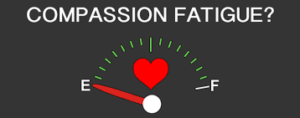Even though Congress passed the Americans With Disabilities Act in 1990, many employers continue to discriminate against people with intellectual and developmental disabilities (IDD).
Although IDD people are more likely to be unemployed and underemployed, many businesses find that this population is reliable and efficient. In a tight job market, moreover, people with IDD are ready to roll up their sleeves and get to work.
According to the federal Bureau of Labor Statistics (BLS), almost 6 million people with IDD age 16 years or older are employed in the civilian labor force, about four percent of the total number of workers in the United States.
Yet many of these employees are subject to bias: unemployment for people with disabilities stands at 7.7 percent, as opposed to 3.3 percent for the general population, according to BLS. And, in 2017, almost a third of all discrimination cases filed with the U. S. Equal Employment Opportunity Commission concerned people with disabilities. That number has jumped from around 22 percent in 1997.
For many reasons, small business owners and larger companies have never considered hiring someone with IDD and remain unaware of this population’s capabilities – beyond bagging groceries or tearing tickets at a movie theater.
For example, Levy Restaurant Group placed more than 100 IDD individuals in jobs at the Barclay Center, a large sports and concert venue in Brooklyn, and plans to expand the program to other locations.
In addition, the play Amy and the Orphans, which debuted in 2018, became the only Broadway or Off-Broadway production to feature actors with IDD in leading roles.
And, HeartShare Human Services of New York, founded in 1914, helped place avid basketball fan, Donald, in his dream job at a Modell’s sporting goods store in New York City.
“Everybody is capable of playing a role in your company,” said Donald’s colleague, Luis Rodriguez. “Businesses should take the time to see what these unique, motivated and skilled people can do. Don’t judge a book by its cover.”
The New Year is a great time to seek out agencies that provide services to people with IDD. The Arc, the largest national organization that helps people with IDD find employment, has more than 700 chapters across the United States.
The organization, started in living rooms and church basements by parents who rejected the advice of pediatricians that they institutionalize their IDD children and “create a better life for [their] sons and daughters,” said CEO Peter Berns, is the eighth largest charity federation in the United States.
There are many other organizations where one may find information on hiring IDD individuals. For example, through its Job Bank and other services, Providers Alliance for Community Services in Texas helps deliver long-term support for people with IDD in the Lone Star State.
Giving people with IDD a sense of purpose and self-worth through employment presents a win-win proposition and brings a deep sense of satisfaction that exceeds the cost of actually hiring these competent and motivated employees. It also supports the mission of diversity and inclusion as a driver of organizational strategy, which has been linked to increased employee engagement and customer loyalty.
Hiring IDD individuals makes good business sense while also doing good.

